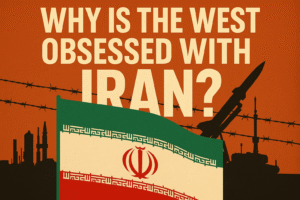Geopolitical Briefing: Bangladesh
20 June 2025
- International Crimes Tribunal issues 24 June summons for Sheikh Hasina and Asaduzzaman Khan, with trial in absentia threatened.
- Joint naval exercise with India completed in northern Bay of Bengal, reinforcing maritime operational readiness.
- Interim government affirms intent to prosecute exiled officials despite foreign protection, removing reliance on extradition.
- Press clampdown escalates as more journalists face criminal charges and accreditation revocations.
- Bangladesh and Japan move to conclude Economic Partnership Agreement by year-end, advancing infrastructure and trade ties.
On 16 June 2025, the International Crimes Tribunal issued official summons for ex-Prime Minister Sheikh Hasina and former Home Minister Asaduzzaman Khan, demanding their appearance in court by 24 June on charges of crimes against humanity during the 2024 protests. Failure to comply will result in trial in absentia, marking a legal milestone in the state's pursuit of accountability for regime-led violence. This move signals consolidation of domestic legal authority and diminishes the impunity previously afforded by India-aligned leadership.
Bangladesh concluded a three-day joint naval exercise with India in the northern Bay of Bengal, focused on search and rescue coordination, anti-smuggling drills, and surveillance operations. Conducted under the framework of coordinated maritime patrols, the exercise aimed to reinforce regional interoperability while asserting Dhaka’s commitment to securing its maritime boundaries. The operation affirms the government’s prioritisation of access to and control over its strategic coastal zone.
The interim government has reaffirmed its readiness to proceed with legal prosecution of Hasina and Khan regardless of their failure to appear, declaring that court proceedings will not be delayed by lack of extradition. This removes dependency on India’s political cooperation and underlines a shift in Bangladesh’s approach to foreign-aligned fugitives, reflecting a broader assertion of political and legal autonomy from past regional subordination.
Media suppression has intensified with the arrest and indictment of more than 40 journalists in recent days, primarily from independent and foreign-linked outlets. Government sources claim the individuals violated national security and misinformation statutes, while civil society organizations have labelled it a purge. The crackdown highlights the regime’s tightening control over public discourse and its effort to eliminate remaining liberal influences in national information flows.
In Tokyo on 18 June, Bangladeshi and Japanese officials finalized a roadmap toward signing a bilateral Economic Partnership Agreement (EPA) by the end of 2025. The agreement is expected to liberalize trade in key sectors including textiles, energy, and digital services, and secure Japanese investment in infrastructure and public transport. This realignment indicates a pivot towards Asian financial partners outside India and China, enhancing long-term economic independence and global diversification.

